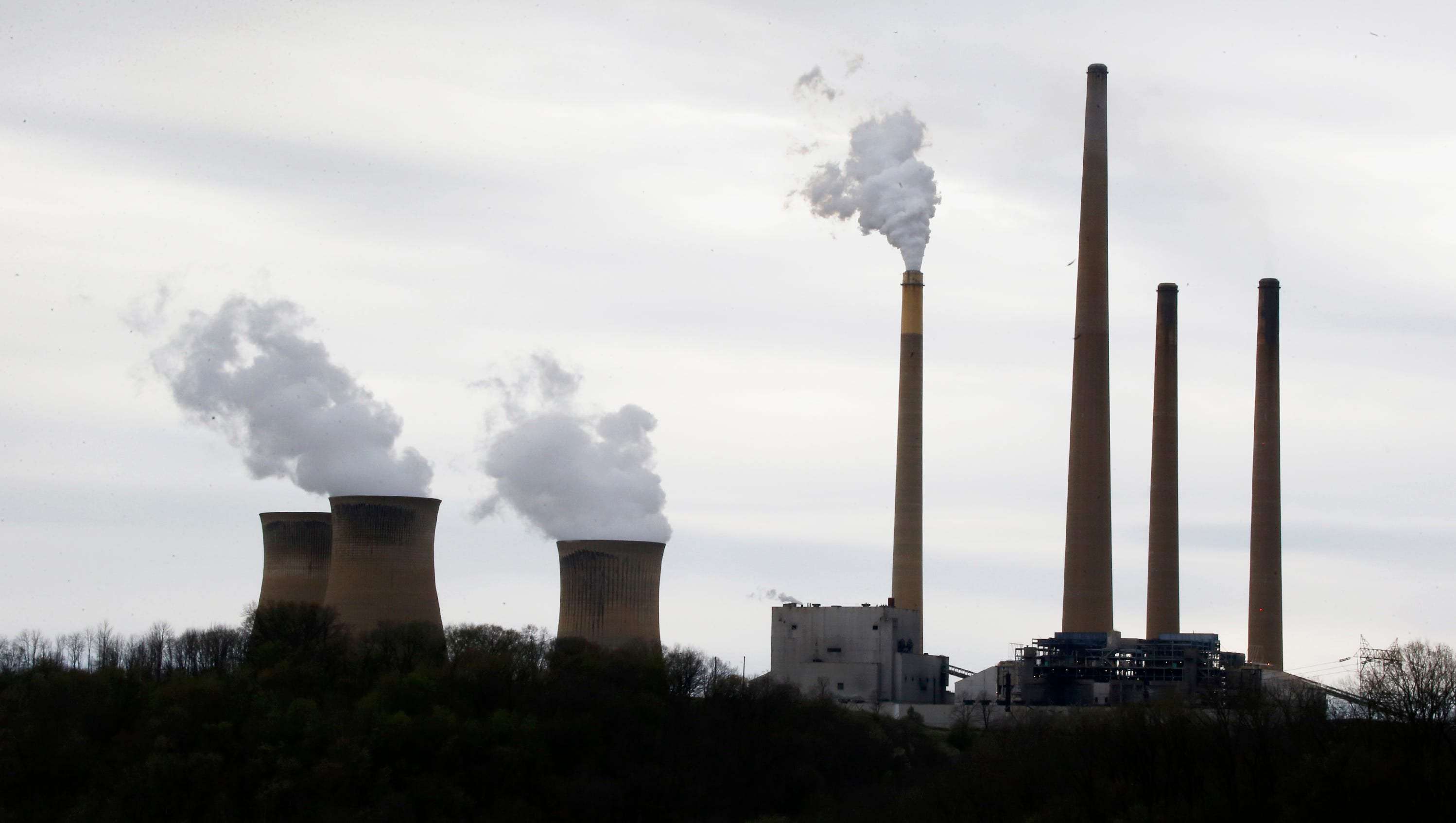'Worst is yet to come': Disastrous future ahead for millions worldwide due to climate change, report warns
Show Caption Hide Caption Climate change: 4 weapons to slow or reverse global warming There are realistic ways to reverse or slow down climate change, and scientists made it simple by choosing four of the best. Buzz60
The report, which is scheduled for official release next year, is the most comprehensive rundown to date of the impacts of climate change on our planet and our species.
"The worst is yet to come, affecting our children's and grandchildren's lives much more than our own," the report warns.
Millions of people worldwide are in for a disastrous future of hunger, drought and disease, according to a draft report from the United Nations' Intergovernmental Panel on Climate Change, which was leaked to the media this week.
"Climate change will fundamentally reshape life on Earth in the coming decades, even if humans can tame planet-warming greenhouse gas emissions," according to Agence France-Presse , which obtained the report draft.
The report warns of a series of thresholds beyond which recovery from climate breakdown may become impossible, The Guardian said. The report warns: “Life on Earth can recover from a drastic climate shift by evolving into new species and creating new ecosystems… humans cannot.
"The worst is yet to come, affecting our children's and grandchildren's lives much more than our own."
Species extinction, more widespread disease, unlivable heat, ecosystem collapse, cities menaced by rising seas – these and other devastating climate impacts are accelerating and are bound to become evident in the decades ahead, according to AFP.
Highest in more than 4 million years: Earth's carbon dioxide levels soar to record high despite pandemic
'They're at the brink of existence': California deserts have lost nearly 40% of plants to hotter and drier weather, satellite data shows
The IPCC’s 4,000-page draft report, scheduled for official release next year, offers the most comprehensive rundown to date of the impacts of climate change on our planet and our species, AFP said.
Climate change, also known as global warming, is caused by the burning of fossil fuels such as oil, gas and coal, which release greenhouse gases such as carbon dioxide and methane into the Earth's atmosphere. Those greenhouse gases have caused our atmosphere to warm to levels that scientists say cannot be due to natural causes.
So far, since the Industrial Revolution of the 1800s, the Earth has warmed by 1.1 degrees Celsius (which is roughly 2 degrees Fahrenheit), according to NASA.
The report warns of "progressively serious, centuries' long and, in some cases, irreversible consequences." The report also said that the millions of people who live along coastlines almost everywhere around the world could be battered by multiple climate calamities at once: drought, heatwaves, cyclones, wildfires and flooding.
Simon Lewis, a professor of global change science at University College London, told The Guardian that “nothing in the IPCC report should be a surprise, as all the information comes from the scientific literature. But put together, the stark message from the IPCC is that increasingly severe heatwaves, fires, floods and droughts are coming our way with dire impacts for many countries.
"On top of this are some irreversible changes, often called tipping points, such as where high temperatures and droughts mean parts of the Amazon rainforest can’t persist. These tipping points may then link, like toppling dominoes."
In a statement following the leak of the report, the IPCC said that it does not comment on the contents of draft reports while work is still ongoing. The official report, designed to influence critical policy decisions, is not scheduled for release until February, AFP said.

Tele_Viper on June 25th, 2021 at 22:09 UTC »
If only we had re-elected Jimmy Carter in 1980: he put solar panels on the White House and signed executive orders for the Dept Of Energy to start moving the US energy economy toward renewables. Then Reagan was elected: tore off the panels and stopped the emissions regulations work, etc.
The intervening 40 years have been a complete disaster in terms of climate policy. We could have overhauled our entire energy economy by now. It is a tragedy on an epic scale that Carter wasn’t re-elected.
Crotean on June 25th, 2021 at 21:06 UTC »
The die off of pollinators is the most concerning thing facing us. By the 2050s we are looking at 40-60% of all pollinator populations dying off. There is a very real chance our food supply collapses somewhere within there.
justaddwhiskey on June 25th, 2021 at 15:37 UTC »
We’re pretty far past cutting emissions being sufficient, and need to look into re-forestation and industrial scale carbon capture systems, no matter the costs.